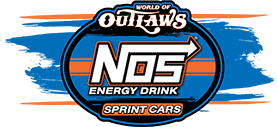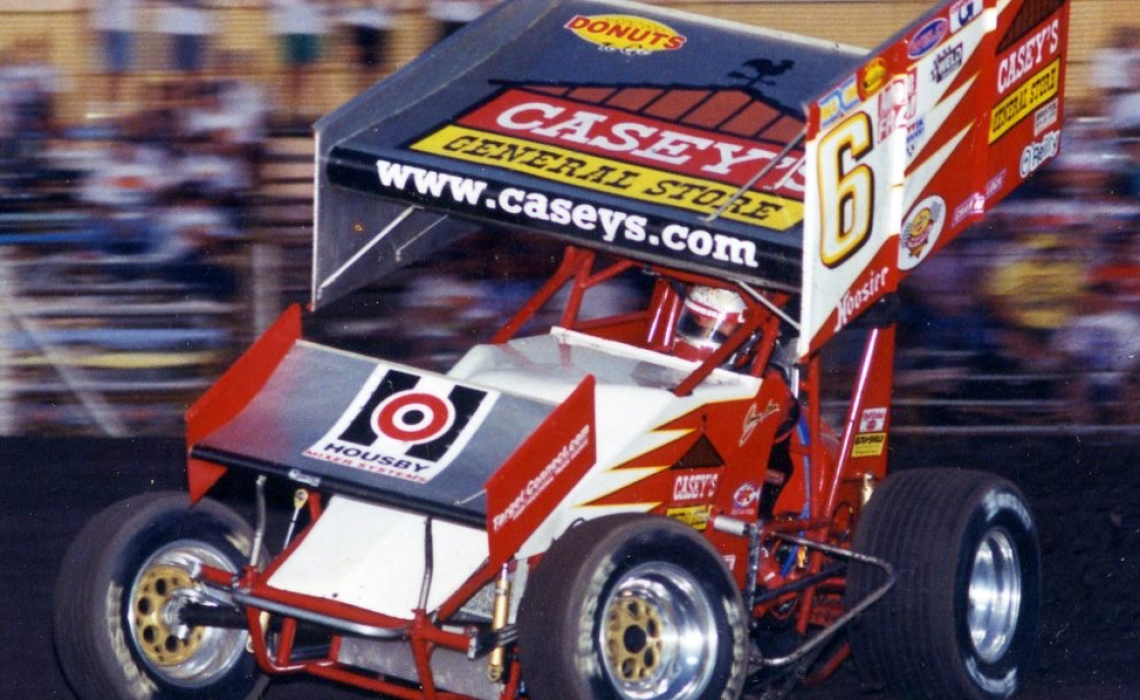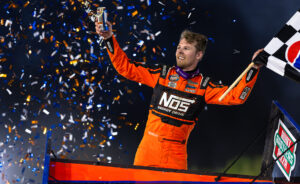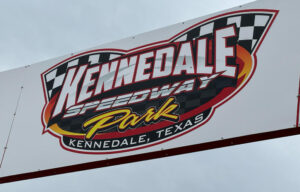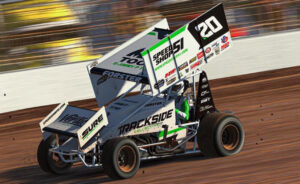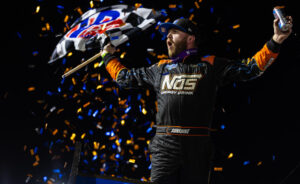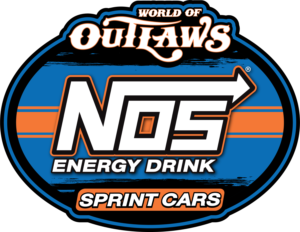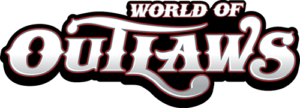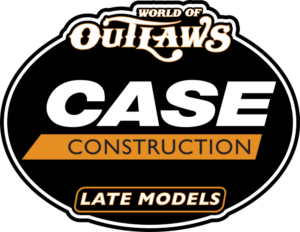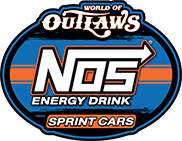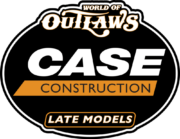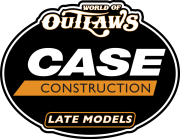The World of Outlaws has paused many times. It has been rained out from Florida to Seattle and hammered by hurricanes in Houston and Santa Cruz. It was too windy in Oklahoma City, too rough to race in Nevada and New Mexico, and Michigan was too full of stones. Outlaw competition director for 12 years, Bobby Jackson addressed a thousand drivers meetings but never had one silenced by snow until one April afternoon at Eldora, Ohio.
No one has ever seen a worldwide pandemic. Black Plague? That was 1352! Quality health care was a fistful of leeches. We no longer quarantine kids for polio. Still here we are, sent to our rooms 60-feet apart; March Madness on massive global scale. We seem like extras on a motion picture where any second, Will Smith or Mark Wahlberg will say, “It’s only Hollywood: Land of Make Believe.”
But this preposterous script is very real and very cruel. People lay dead and dying. The World of Outlaws is not immune. More than any sport, auto racing understands the fragility of life. If cancelling the SoCal Showdown saved one Perris Auto Speedway spectator, are caring humans not obligated?
Coronavirus will be analyzed by future generations of medical scientists and terrorists seeking germ warfare. Terrorism was why The Outlaws paused on September 11, 2001.
On that tragic Tuesday morning, Outlaws were between races at Silver Dollar and Texas Motor Speedway. I was no different, enjoying a prosperous 2001 as editor of Flat Out Illustrated and World of Outlaws statistician on 14 Outdoor Channel telecasts from Las Vegas to Fort Worth, Houston, Fargo, Eagle, Greenwood, Knoxville, Bristol and Charlotte. Hindsight shows that time spent driving boxes of magazines around the country should have been better spent on the publication itself, but I digress.
TMS being a TV race, I arrived three weeks early to park my van there as a favor from Gary Guehler, press agent from National Speed Sport News to World of Outlaws, USA then Eddie Gossage. Gary got me to Dallas-Fort Worth airport bound for Phoenix Sky Harbor to merge with brother Steve’s wondrous vacation through Ventura, Perris, Hanford, Watsonville, Gold Cup and San Francisco debauchery. Yes, we Eckert boys were awash in the lobster-and-lap dance lifestyle despised by those about to direct jihad.

We sat in Phoenix two hours behind New York clocks. So before our morning commute from cousin’s condo to father’s trailer, the largest attack on American soil was smoke and rubble. Our first clue that the world was askew was George W. Bush’s voice on the radio where rock and roll had been. President was swearing vengeance but against whom, we had no clue. I motioned Steve into Circle-K and when I returned with coffee he quietly said, “The Twin Towers are gone.”
Pausing to ponder the collapse of the world’s tallest buildings, we nevertheless proceeded with our intent to take Bob Eckert to BOB (Bank One Ballpark) for Arizona Diamondbacks baseball because baseball was our father’s true passion. D-Backs were in demand because 2001 was their only championship season. Dad did not generally listen to morning news so he knew nothing of strikes on Manhattan, Pentagon or Flight 93 until informed by only offspring. Still he did not grasp how a baseball game could get hijacked from 2000 miles until we gently explained that because air travel was weaponized, air travel was halted even for the New York Yankees. Only then did dad process the scope of the tragedy, harkening to 1963 when I was three months old and John F. Kennedy was killed. The National Football League wrestled over whether to play games during such global grief. Football did indeed go on but NFL commissioner Pete Rozelle regretted it to his dying day.
Football had been foremost on our minds on September 10, 2001. It was the opening Monday Night game when we watched Denver receiver Ed McCaffrey carted off with a grotesque leg fracture. As a fan of their Raider rivals, I wondered which Bronco might fill Ed’s slot. But there would be no games on Sunday or Monday because commissioner Paul Tagliabue did not repeat Rozelle’s remorse.
September 8, 2001 was brother’s only Gold Cup. It was my fourth plunge into the premier West Coast sprint car festival. We partied like pirates then witnessed Mark Kinser grab $25,000 (up from 20k in 2000) after 16 years of Chico futility. Of course, Mark’s daddy Karl Kinser hoarded NINE Gold Cup wreaths before the kid could contribute. They departed California with 23 points more than Danny Lasoski with 17 races remaining.
September 9, 2001 found the (STP) World of Outlaws happy to exit the West Coast for the same eternal reasons: crime, gridlock, diesel prices, wheel packing, mufflers, curfews, and crazy fast locals. One was a kid from Concord named Damion Gardner who cracked the top grid in NorCal five months before reinventing himself without wings in SoCal. “The Demon” and Eric Rossi forced future champs Jason Meyers and Dale Blaney to burn provisional starting spots.

Jeff Shepard and Minnesota’s Guy Forbrook on the other hand, were at their best out west by winning at Yakima, two of three at Calistoga, Chico prelim then second to Mark’s Mopar. It was too late to save Jeff’s job since Forbrook had already decided to dump Shepard and his suggestions. “The Mouth from Maryland” (as Fred Rahmer teased) bruised his brain at the 2008 Knoxville Nationals and retired to raise children in Baltimore suburbia with Michelle Loh of Williams Grove fame. Forbrook was inducted into the National Sprint Car Hall of Fame in 2017 and will roll with Gio Scelzi when 2020 resumes.
Local drama at Gold Cup 2001 swirled around Jonathan Allard and Wright One Construction, which ran as high as third, faded to fourth, then was disqualified because Bobby Jackson determined their engine did exceed 410 cubic inches. Despite the bust, Rick Wright became a bonafide Outlaw for four years, achieving fifth at Eagle with Allard until Jon was replaced by Danny Wood, who was second at Lebanon Valley. Wright tapped Tim Shaffer, hired Allard back and called Jesse Hockett, Peter Murphy and Dale Blaney for ninth in the 2004 Vegas finale. Rick opened 2005 in Australia with Murphy and fourth in Florida with Mark Kinser before Kerry Madsen took the gig. Murphy returned, Travis Rilat was tenth at Sheboygan and then Tim Kaeding closed. Jac Haudenschild completed 2006-07 Outlaw seasons as Wright One, winning on U.S 36 high banks then adding Sharon, Beaver Dam, Lawrenceburg, Fargo and Brad Doty Classic honoring Haud’s lifelong friend.
Wright One broke a rule in a series born with no rules. I wondered if we might mention that irony on the Texas telecast or if it was better to avoid the spectre of cheating. I was eager to ask Eli Gold, radio voice of NASCAR and as such versed in tech shed red flags. Eli graciously gifted a photo autographed by his University of Alabama football broadcast partner and my favorite Raider quarterback, Kenny “Snake” Stabler. Gold was horribly miscast as Outdoor Channel anchor on “The Greatest Show On Dirt” because he knew nothing of dirt or sprint cars. Eli’s ignorance was literally my meal ticket: food, flights, hotels, and rental cars charged to Diamond-P Production in exchange for slapping Post-It notes of timely facts in front of Gold as I had done for Ralph Sheheen.

Texas Motor Speedway meant $500 that I would not or could not miss. Mine was a thousand miles of limbo. If I gambled that the travel ban would lift in two days, I could fly to Dallas as scheduled. If however, air travel was not restored and the race went on as slated, I would lack sufficient time to drive there. I chose to punt by renting a car for 20 hours of talk radio designed to ferret out which religious zealots knocked down those towers. It seemed essential but I would not wish such ideological overload on my worst enemy. I was somewhere near Midland when TMS canceled their entire NASCAR and World of Outlaws visit. Air travel resumed too late (September 13) to save Texas. Airports are the way television crews assemble. And just how was Roger Penske supposed to get there?
I always considered myself a racer. I just happened to have a pen instead of a helmet. And so I did what racers do: I found another race. After driving across Texas with its ridiculous expanse, Arkansas was a cup of coffee. Memphis and West Memphis found Tim Crawley sweeping ASCS 360 fields spiked by Outlaw veteran Terry Gray and future Outlaw kids Jason Johnson, Daryn Pittman and Jason Sides. As always, I wandered down to Beale Street for some blues music trying to dampen the fact that the United States was at war with something called Al Qaeda.
The Outlaws only paused for eleven days. Nebraska brought television business as usual and a crushing three-night sweep by Mark and Karl Kinser, who dominated I-80 on seven of their first eight visits. Mark won twice as often as “Danny The Dude” but did not become three-time champ. Lasoski landed the first national title for himself or car owner Tony Stewart when they edged the Kinsers by 30 points in the Vegas final

Auto racing is resilient. It has survived war, drought, depression, recession, and gasoline shortage. Racers are problem solvers. Whatever the new normal will be, racers will adjust their settings as surely as wind dries a dirt track. If this virus reminds us to wash our hands more thoroughly, perhaps something positive can be gleaned. If it reinforces how a health problem in Italy or China is a health problem everywhere, we are now inconveniently aware. Racers are often isolated from society. But the World of Outlaws is only part of the world outside.
woo
